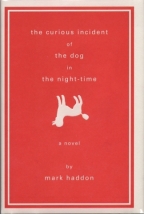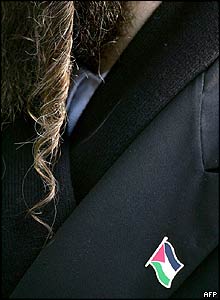I bought Armstrong's book about Muhammad about a year ago, after reading her short book about the history of Islam. I liked that book, as it covered the main topics about Islam quite well, so I thought I would enjoy reading her previous, longer book about the founder of that religion: Muhammad - A biography of the Prophet.
 In Muhammad Armstrong paints a loving and sympathetic picture of the man who created the world's second largest religion (soon probably to become the first largest). The prophet is described as a gentle and caring person who possessed charismatic skills and spiritual deepness, that succeeded to transform Arabia from pagan belief to monotheistic belief in a remarkably short period of time. Armstrong depicts Muhammad in glowing colours, even when she admits his wrongdoings. In the 8th chapter, "Holy War", Armstrong recounts the massacre and summary executions of the Jewish community in Qurayzah and apologetically describes them as "a reminder of the desparate conditions of Arabia during Muhammad's lifetime" (p. 208). She continually reminds the reader that the word "Islam" means peace and reconciliation, but some of the events described in the book (and the atrocities committed in the name of Islam in our times) leave us wondering about the application of these virtues by Muslims throughout history.
In Muhammad Armstrong paints a loving and sympathetic picture of the man who created the world's second largest religion (soon probably to become the first largest). The prophet is described as a gentle and caring person who possessed charismatic skills and spiritual deepness, that succeeded to transform Arabia from pagan belief to monotheistic belief in a remarkably short period of time. Armstrong depicts Muhammad in glowing colours, even when she admits his wrongdoings. In the 8th chapter, "Holy War", Armstrong recounts the massacre and summary executions of the Jewish community in Qurayzah and apologetically describes them as "a reminder of the desparate conditions of Arabia during Muhammad's lifetime" (p. 208). She continually reminds the reader that the word "Islam" means peace and reconciliation, but some of the events described in the book (and the atrocities committed in the name of Islam in our times) leave us wondering about the application of these virtues by Muslims throughout history.
Prof. Emanual Sivan, one of Israel's leading historians of Islam, wrote a review about Muhammad in Ha'aretz a few months ago. He described Armstrong's book as "history soaked in rose water" and claims that the author shed all sense of criticism before writing the book and failed in distinguishing between historical facts and myths which evolved long after Muhammad died. I am no expert of Islam, but I tend to agree; I feel I know more about the life of Muhammad now, but I am left with a sense of an unbalanced view of this great man.
There was one observation in the book which I liked very much. When she starts describing Muhammad's rising success as a skilled and respected politician, Armstrong mentions that the Christian world has always judged this part of the prophet's life with distrust. The Western view has traditionally seen Muhammad's political success as proof that he was an impostor using religion as a means to power. To explain this attitude, Armstrong offers the following insight:
Because the Christian world is dominated by the image of the crucified Jesus, who said that his kingdom was not of this world, we tend to see failure and humiliation as the hallmark of a religious leader. We do not expect our spiritual heroes to achieve a dazzling success in mundane terms. (p. 164)










